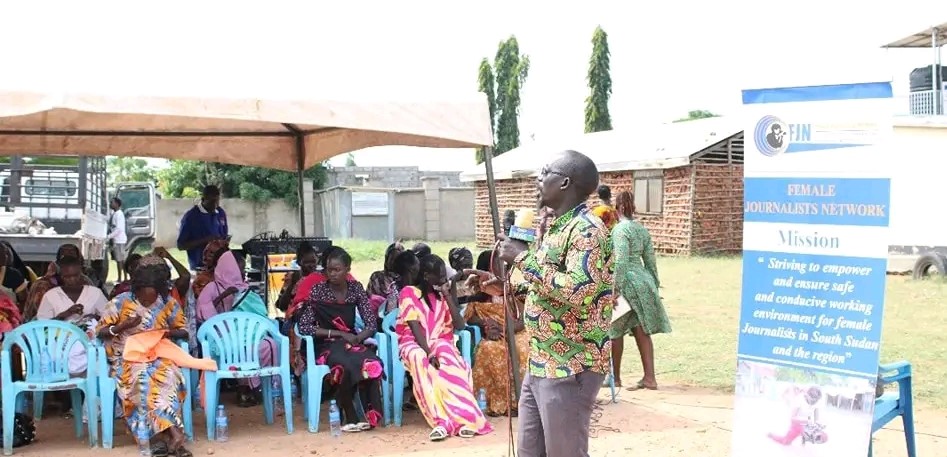The youth in Gurei, a residential area in Juba, have raised concerns over “their exclusion from empowerment programs” during a grassroots discussion held on Thursday.
The meeting, focused on ending Gender-Based Violence (GBV), was organized by the Association for Media Women in South Sudan (AMWSS) with support from USAID through the IREX SIMA Project.
Speaking on behalf of the youth in Gurei, Baba Solomon, the area’s youth secretary, expressed frustration over “the neglect of young people in local empowerment initiatives.” He pointed out that most organizations focus their resources and support on women, leaving young men, in particular, without opportunities for empowerment.
Solomon also highlighted the rising number of street children and young gang members in Juba, particularly in Konyo-Konyo and other local markets. He attributed this to the lack of support for youth, which, he argued, leads many to engage in destructive behavior.
“The youth have been forgotten. Organizations are prioritizing women’s empowerment, but young men are left behind,” he said. “The son, whose father can’t pay school fees, ends up on the streets washing cars or joining criminal groups in places like Konyo-Konyo, where they resort to drugs and illegal activities.”
Lily Nelson, an executive board member at the Association for Women in Media Development (AWMD), defended the focus on women’s empowerment, explaining that women often excel in roles traditionally associated with care and household work.
She argued that women’s involvement in markets and family support roles is essential to the country’s economy. “Men are not forgotten, but women are more engaged in sectors that are crucial to our society,” she said. “If you look at South Sudan’s markets, you’ll find that women handle most of the work, like selling food and supporting their families.”
James Boboya, a representative from IREX, urged women to join forces with their male counterparts to build a better South Sudan. “Don’t think of yourselves as just women; your work at home is just as important. If you can contribute to building your home, you can also contribute to building the nation,” Boboya emphasized.
“You can do the same things men do—open businesses, establish schools, and contribute to the development of South Sudan. You are no longer just women for the kitchen; you are women who can build the future of this country.”
The grassroots dialogue and awareness campaign, organized by AMWSS with support from USAID and IREX SIMA, is part of the 16 Days of Activism Against Gender-Based Violence. The campaign was launched on November 25, 2024, by the Minister of Gender, Child, and Social Welfare in Juba.




